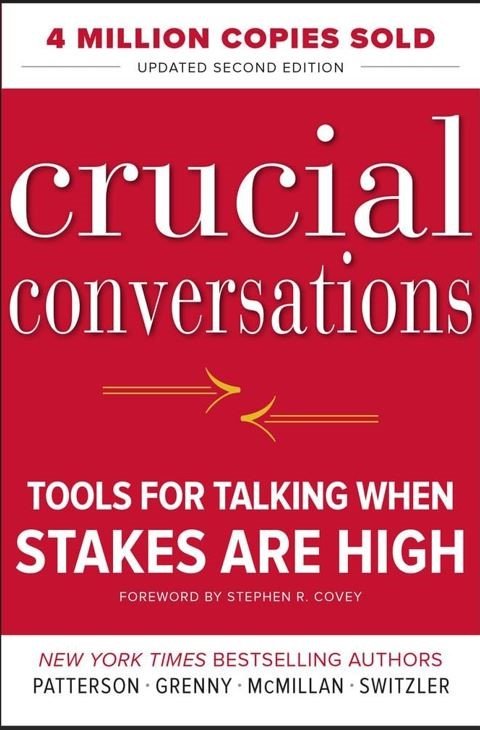From Top to Troubled: Reviving a Struggling Star Performer
What’s up with Eric? A once dynamic and energetic employee with consistent quality and endless capacity is (figuratively) unrecognizable. Eric’s performance has deteriorated over the past 2 months. Spotty attendance, a chronic failure to meet customers’ needs, and a short temper top the list. Your concern for Eric is both professional and personal. You and a few of his close teammates wonder if everything is ok for Eric at home. These same mates have been covering for Eric’s misses, but you know a more stable solution is needed. You want to give Eric the space he needs to work through this tough stint, but the stint has turned into a full season and it’s time to intervene. Equal parts compassion and accountability are necessary…but which should you lead with?
You could continue to let the good will of others cover for Eric’s lack of productivity, but that will run dry in a few weeks. Not addressing your concerns about Eric’s performance and the rather sudden change in his personality could become a missed opportunity to help a good employee recover. In addition, gaining the discretionary effort of your team (effort they offer without being asked) due to a peer in need is not something to take for granted. Usually, team members will stand up and stand in for an employee in need, but if this becomes chronic and goes unaddressed…expect a stand down from the masses.
When we are busy stressed and tired our words come out as criticism and blame. Comments like “Your work is under par lately” or “You can’t afford more mistakes” only serve to embarrass. There’s not a trace of empathy or a genuine desire to understand what is contributing to his struggle. substantial or constructive. This situation deserves a serious, constructive, and structured conversation that is focused on problem solving and employee wellness.
Prep concrete examples of Eric’s current state and get clear on your intention to get curious about the source of his stagnation (sans interrogation) and structure a way forward. Ideally, address this situation as soon as you have enough data about the situation. You’re opening line could be, “Eric, thank you for meeting today. I’m concerned about you, I’ve noticed a change in your demeanor and work over the past couple of months. For example, A…B…and C.** Of course, you don’t need to discuss any personal topics you aren’t comfortable discussing, but if work is the source of this change, I’d like the opportunity to correct that.” Then - Be - Silent.
**Whether it’s customer feedback, department reports, documented mistakes, and/or calling out frequent Monday absences, bringing this information forward is a powerful step toward unraveling and addressing the problem.
Eric might respond with:
1. The Sounds of Silence: Allow Eric room to breathe and collect his thoughts. If that silence becomes deafening, you’ll need to march through the metaphorical door you just propped open by with the next question: “You’ve been successful in the past. What do you think’s been getting in the way recently?” With Eric now actively engaged (hopefully) in the dialogue, you’re well on your way to diagnosis followed closely by resolution. To do this well, keep asking smart questions to peel back the layers (we got you…see below ideas).
2. Liberating the Issue: If Eric reluctantly discloses that there is indeed an underlying problem – e.g., his overwhelm has been making him feel like an underachiever for a while – that is the opening you need to dig deeper for the root cause.
Root Cause Questions
“Tell me what is specifically causing you to feel overwhelmed.”
“What do think is behind your feeling of underachieving?”
“What was present for you when you were successful that’s missing for you now?”
“What I am hearing you say is_______does that accurately capture the situation?”
“What responsibilities or tasks are you struggling with the most?”; “In what ways?” or “How so?”
“Say more about xyz.”
“What have you tried so far?”; “What’s worked and what hasn’t worked?”
“What’s getting in the way?”
“What’s stopping you from….?”
Is your current workload not tapping into your talent and skill set?”
Coaching Cues - Clear on the problem? Spark solutions with these words:
What does success look like to you?” followed by “Here’s what it looks like to me.”
“Let’s brainstorm some ideas to help you feel less overwhelmed and more successful.”
“Which ideas feel realistic?”
“What could you do differently?”
“Where can I offer greater support?”; “Who else could you tap into for support?”
“What actions will you take before our next meeting?”; “What will you do first?”
Commit to a Way Forward
Wrap up this crucial conversation:
1) Summarize: “Ok, here’s what we’ve established as expectations and next steps. Did I miss anything?”
2) Commit to weekly check-ins, regardless of your own workload, to stay closely connected.
3) Reassure: “I have a lot of confidence in you and trust your ability to back on track with the actions we agreed to.”
The Final Word
When supporting colleagues who are in a slump, remember that it took them a minute to get stuck; it will take a minute to re-emerge as the employee they are capable of being. Perhaps you’ve been there, and what pulled you out of your performance purgatory was a Manager who helped you name it and face it. Your awareness, curiosity, and empathy as a Leader will communicate a dedication to support while cracking the code on struggling team members.
The Final Final Word
Your intention should not be to “fix” the employees you work with but to “grow” them. This nuanced mindset will help you select the words, tone, and tools needed for productive conversations and ultimately, talent development.
Performance Conversation Don’ts:
Label the news you need to deliver as a “difficult conversation” in your mind; instead frame the discussion in a positive or neutral light.
Bother writing a script for how you want the discussion to go; jot down notes if it helps, but be open and flexible.
Ignore the other person’s point of view — ask your counterpart how he sees the problem and then look for overlaps between your perspectives.
Rebecca Knight, author, How to Handle Difficult Conversations at Work
“I have seen businesses move poor performers from one department or business unit to another, or create a new slightly different position to move them in to. Other Managers simply ignore the problem and let it fester to breaking point; resulting in the employee being dismissed or they resign…avoiding the poor performance conversation no good for anyone.”
Angela Connor, director, Inspire HQ; author, Avoiding the Poor Performance Conversation - What is the Real Impact?
Don’t stop now! Learn more from a few of our personal favs below:
Disclosure: The resources shared and listed by KKL & Co. are those that have been evaluated to be of high value to our leaders. We are proud affiliates for some of these resources, meaning if you click a link and make a purchase, we earn a nominal commission at no extra cost to you. Please don’t spend any money on these resources unless you believe they will help you become a better human.













